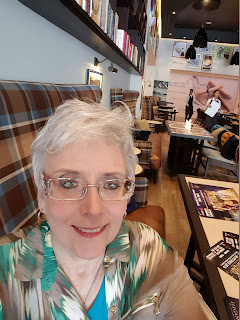My Second Academic Year In Qatar Starts on Sunday!

My Facebook feed keeps showing me photos from a year ago: My first day in Qatar on August 15, 2015, jet lag clearly present. My shopping trips with friends as I began housekeeping in my Porto Arabia Tower apartment. Delicious meals at the restaurants featuring a wide variety of international foods. The onboarding process at Qatar University for new faculty. Steamy nights exploring the souk. Some sight-seeing trips in the blistering evening heat. Exploring fancy spas. Morning walks on the harbor with West Bay skyscrapers visible in the distance. Dressing up for the law school's reception at the Ritz Carlton. I am happy and curious in all these photos. I look at those photos and feel grateful that I am through that demanding transition process. Doha is now thoroughly my home. I have a new apartment in Qanat Quatier, a...





